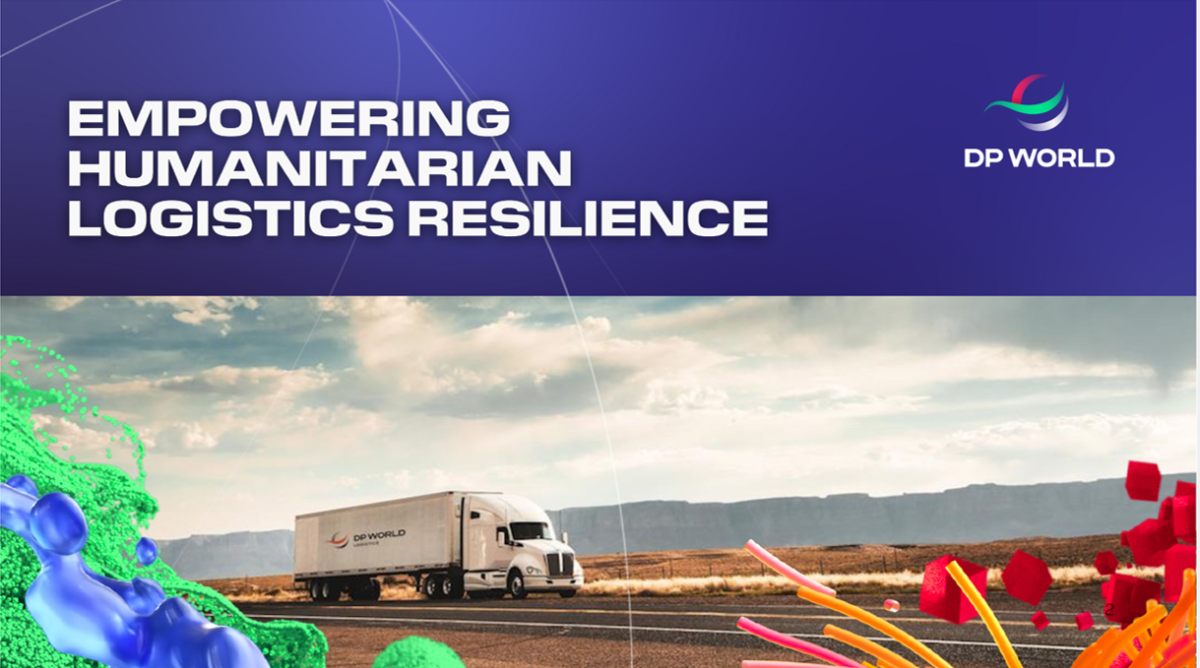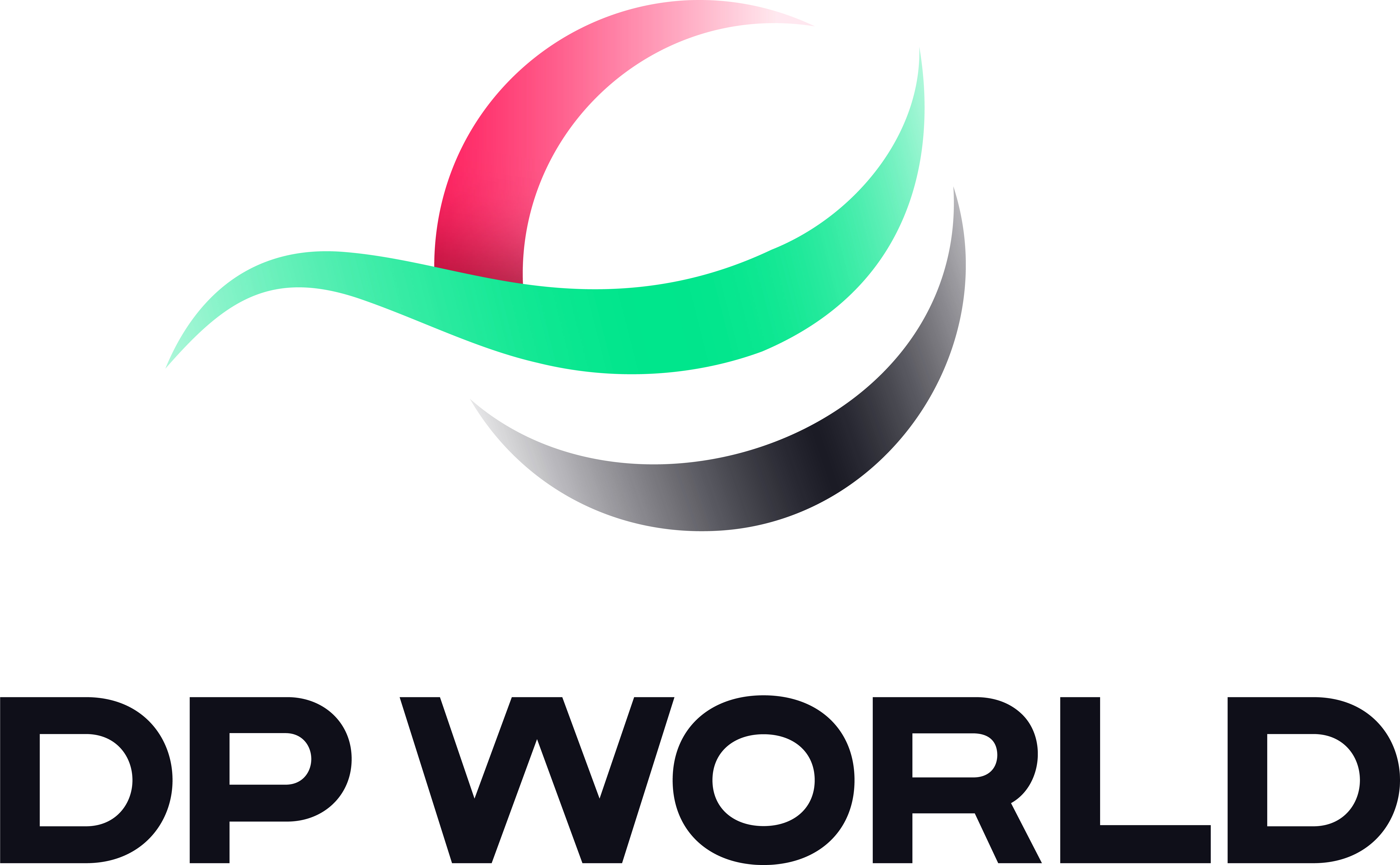Empowering Humanitarian Logistics Resilience in the Climate Crisis Era
Enhanced logistical coordination, strategic partnerships, and technologies to improve the efficiency and sustainability of humanitarian responses are crucial in the face of escalating climate crises.

In today’s interconnected and climate-threatened world, the efficiency of humanitarian logistics becomes not just a response tool, but a critical element of resilience. With global challenges intensifying—especially those spurred by climate change—the role of logistics in humanitarian efforts has never been more crucial.
DP World's whitepaper, Empowering Humanitarian Logistics Resilience, offers a detailed exploration into elevating logistical responses to a form of art that saves lives while nurturing the planet. The whitepaper examines the complex nature of humanitarian logistics. At its core, it is about the swift mobilization of resources to crisis zones—planning, procuring, transporting, warehousing, and distributing essential goods. Such activities determine not only the speed but also the effectiveness of responses to disasters and emergencies, where conventional supply chains falter under pressure.
One significant highlight from the paper centers on the importance of coordination mechanisms like the Logistics Cluster and collaborative frameworks such as the Logistics Emergency Teams. These entities underscore a commitment to a proactive stance in crisis management—anticipating needs, preparing for disruptions, and implementing resilient logistical strategies.
The Scope and Scale of Challenges
The challenges laid out are as daunting as they are urgent. The whitepaper draws on data suggesting that a whopping 73% of humanitarian expenditures are linked to logistics and supply chain activities. More than half (62%) of total disasters since 1979 were caused by weather, climate or water impacts. With climate-related humanitarian responses alone expected to cost upwards of $20 billion annually by 2030, the stakes are high. The emphasis is on refining coordination and expertise to not only reduce costs but also extend the reach and impact of aid efforts.
Strategic Collaborations
Perhaps the most compelling aspect of DP World’s vision involves harnessing private sector partnerships and technological innovations. The Logistics Emergency Team (LET), comprising some of the world's largest logistics companies, including DP World, Maersk, and UPS, exemplifies this approach. This coalition underlines how strategic collaborations can enhance logistical capabilities, making rapid, efficient, and wide-reaching responses possible.
Case Studies
- Forging Hope Amidst Adversity in Haiti – In the aftermath of the devastating 2010 earthquake in Haiti, a powerful example of corporate commitment emerged, reshaping the landscape of humanitarian logistics. Members of the Logistics Emergency Team (LET) came together in a remarkable display of the potential of public-private partnerships.
- Delivering Lifesaving Aid during the Crisis in Ukraine – In response to the dire humanitarian crisis triggered by the war in Ukraine, several logistics companies affiliated with the LET independently mobilized their resources to provide critical aid. We created a rail link from Ukraine to our DP World Constanta port in Romania to expedite the delivery of vital supplies.
- Empowering Disaster Relief in Peru – In March 2017, the catastrophic flooding in Peru left devastation in its wake, displacing tens of thousands and claiming numerous lives. In responding to the crisis, we used our strategic network of partners, including private sector peers within the LET, to orchestrate a collaborative effort to provide critical aid
Technological Innovations
The role of technology, particularly predictive analytics and blockchain, receives due attention as a game-changer in the logistics of humanitarian aid. Predictive models help in pre-empting disruptions, while blockchain technology offers a leap towards transparency and efficiency, crucial for managing resources ethically and effectively.
Adapting to Climate Realities
A central theme of the paper is the undeniable impact of climate change on humanitarian needs. The increasing frequency and severity of climate-induced disasters requires an adaptive logistical approach that can handle the growing scale and complexity of emergencies. This involves everything from climate-informed warehousing to strategic relocations of logistical hubs based on comprehensive risk assessments.
Building Local Capacities and Sustainable Practices
Empowering local communities and building their capacity to respond to emergencies is another critical strategy highlighted. The whitepaper advocates for the development of local infrastructures and capabilities to ensure a quicker and more culturally attuned response during crises. Additionally, it champions sustainable practices within logistics operations, emphasizing green procurement and the reduction of carbon footprints in supply chains.
Integration with Global Initiatives
Linking with global sustainability and humanitarian initiatives adds another layer of depth to the logistical strategies discussed. DP World’s alignment with international standards and frameworks, such as the United Nations’ Sustainable Development Goals (SDGs), ensures that their logistical endeavors are not only effective but also ethically grounded and globally endorsed.
Forging Forward with Unified Efforts
The call to action is clear and resonant: a fortified humanitarian logistics network requires collaboration across humanitarian, public, and private sectors. By converting strategic insights into actionable plans, the goal is to create a more resilient, inclusive, and effective humanitarian response framework.
The whitepaper discusses the importance of data-driven decisions and the application of advanced analytics to improve the accuracy and timeliness of humanitarian responses. The integration of AI and IoT technologies into logistics operations can further enhance real-time tracking and management of resources.
A Visionary Path Forward
As DP World notes in the foreword, this endeavor is about “illuminating the path of humanitarian logistics” in an era where efficiency can mean the difference between life and death. The whitepaper not only lays down the current landscape but also charts a visionary path forward, making a compelling case for an integrated approach that leverages expertise, technology, and human compassion to meet the challenges of our times.
Through detailed analysis, strategic partnerships, and a commitment to innovation and sustainability, the blueprint presented in DP World’s whitepaper aims to revolutionize the field of humanitarian logistics. It stands as a testament to the power of collaborative action and advanced technology in overcoming the logistics challenges presented by today’s global crises.
Download the full whitepaper – Empowering Humanitarian Logistics Resilience

